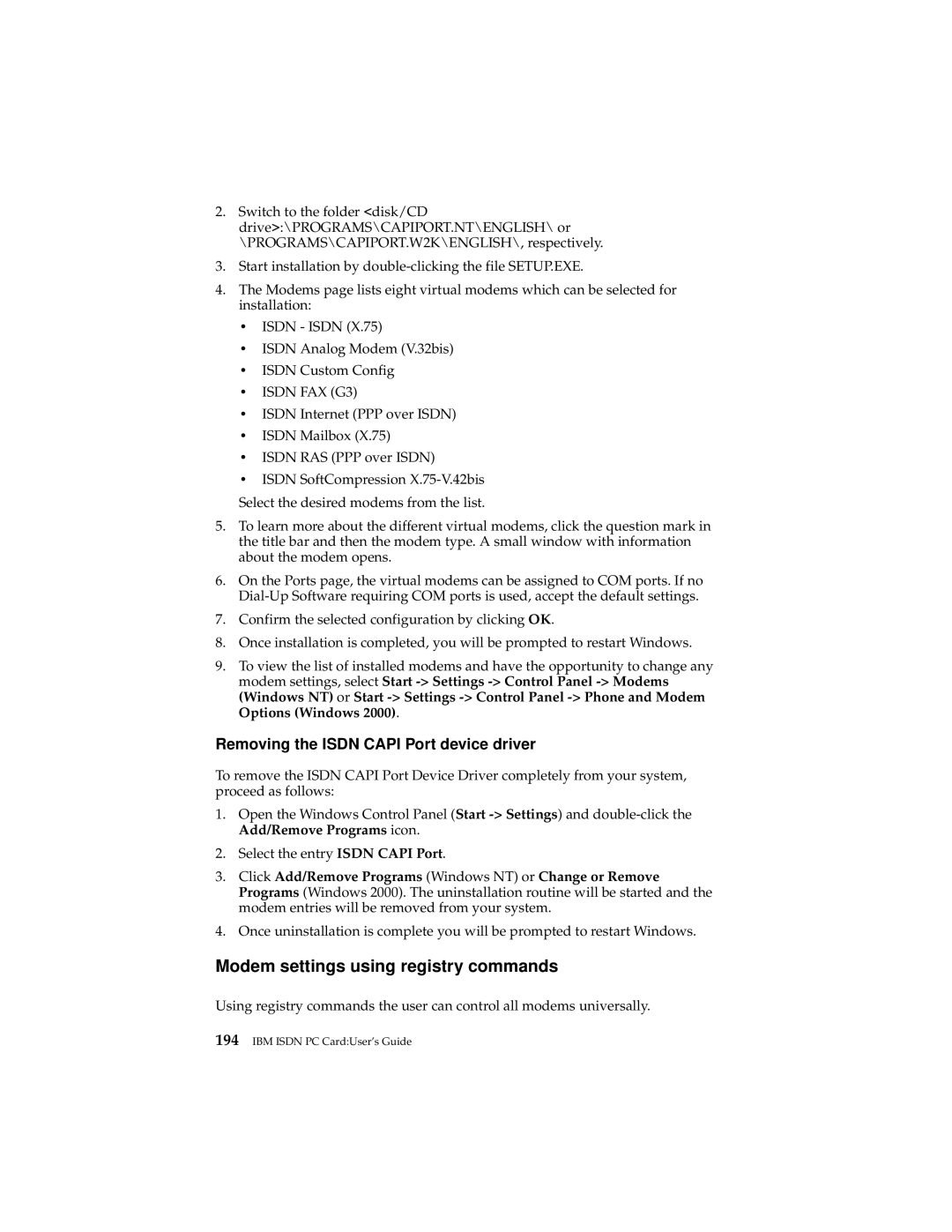2.Switch to the folder <disk/CD drive>:\PROGRAMS\CAPIPORT.NT\ENGLISH\ or \PROGRAMS\CAPIPORT.W2K\ENGLISH\, respectively.
3.Start installation by
4.The Modems page lists eight virtual modems which can be selected for installation:
•ISDN - ISDN (X.75)
•ISDN Analog Modem (V.32bis)
•ISDN Custom Config
•ISDN FAX (G3)
•ISDN Internet (PPP over ISDN)
•ISDN Mailbox (X.75)
•ISDN RAS (PPP over ISDN)
•ISDN SoftCompression
Select the desired modems from the list.
5.To learn more about the different virtual modems, click the question mark in the title bar and then the modem type. A small window with information about the modem opens.
6.On the Ports page, the virtual modems can be assigned to COM ports. If no
7.Confirm the selected configuration by clicking OK.
8.Once installation is completed, you will be prompted to restart Windows.
9.To view the list of installed modems and have the opportunity to change any modem settings, select Start
Removing the ISDN CAPI Port device driver
To remove the ISDN CAPI Port Device Driver completely from your system, proceed as follows:
1.Open the Windows Control Panel (Start
2.Select the entry ISDN CAPI Port.
3.Click Add/Remove Programs (Windows NT) or Change or Remove Programs (Windows 2000). The uninstallation routine will be started and the modem entries will be removed from your system.
4.Once uninstallation is complete you will be prompted to restart Windows.
Modem settings using registry commands
Using registry commands the user can control all modems universally.
